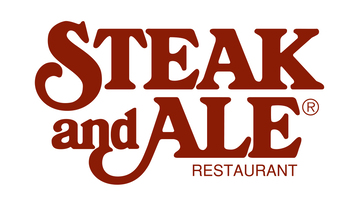The personality type of your staff determines your business’s success.
The cult of leadership skills would have you believe that you have the power to turn any ragtag team into winners, but the truth is less exciting: There’s just one personality trait that makes or breaks an employees effectiveness.
Research indicates that one well documented personality type consistently produces more and better success in the workplace than all the others.
In 1961 two US Air Force researchers, Tupes and Cristal, analyzed massive sets of personality data to condense down historic personality profiling systems into just five core traits. Their work was etched into the psychology lexicon when a 1980 symposium on personality trait research concluded that the most promising personality tests focused on just these five common factors.
The gold standard of personality models, known as The Big Five, was born.
The Big Five theory tells us that while identity (our beliefs, values and individual psychological “make up”) might be infinitely varied, there are just five key dimensions of personality that can be tested and measured without overlap.
The five traits can be remembered with this helpful anagram:
O – Openness
C – Conscientiousness
E – Extraversion
A – Agreeableness
N – Neuroticism
Research singles out Conscientiousness as the Alpha trait. It’s the only thing that really matters when it comes to predicting workplace performance.
In his book How Children Succeed: Grit, Curiosity and the Power of Hidden Character, Paul Tough doesn’t mince his words.
It would actually be nice if there were some negative things that went along with conscientiousness, but at this point it’s emerging as one of the primary dimensions of successful functioning across the lifespan. It really goes cradle to grave in terms of how people do.”
A 2009 National Institute on Aging study, “Personality and Career Success”, points to conscientiousness as the personality trait solely correlated with remarkably higher performance and job satisfaction.
Further, a study published in the Journal of Economic Psychology claims conscientiousness is the one trait that has a huge impact on people’s ability to find and retain employment.
The writing is one the wall: Hiring for conscientiousness equates to hiring winners.
Tough is quick to point out: “People high in conscientiousness get better grades in school and college; they commit fewer crimes; and they stay married longer. They live longer — and not just because they smoke and drink less. They have fewer strokes, lower blood pressure and a lower incidence of Alzheimer’s disease.”
Sounds like psychologically conscientious people would be great employees.
So how do you hire conscientious people?
Conscientiousness is defined as “the state of being thorough, careful, or vigilant”. It includes tendencies to favor self discipline, carefulness, and thoroughness.
In practice, conscientiousness is developed through two “aspects” or behaviors: Organization and Industriousness. Additionally, real-world experience of understanding delayed gratification is a great example.
Here are two hypothetical interview questions you could use to gauge an applicant’s conscientiousness score.
“Tell me about a long term goal you’ve had in life or work?”
Conscientious people tend to understand delayed gratification and the idea of incrementally working towards a desired outcome. Actually doing so – following through – demonstrates that the conscientiousness muscles are working.
A great applicant will relay a story of something they’ve worked hard for, pushing through long term discomfort in pursuit of a distant payoff. This doesn’t have to be some kind of epic training for an endurance event, but could be as simple as someone who saved a little each month until they bought their dream first car. That last example serves a double purpose – use it to get your applicant thinking if they’re stuck on the question.
“What is your definition of a great day?”
The innately conscientiousness will measure their day-to-day self worth based on how “completed” they feel. They’re the kind of people who can’t leave a task hanging, who get irked by being “almost finished”. They’ll go the extra mile to finish tasks completely and get that feeling of closure.
When asking this question, look for answers that revolve around completeness and a sense of knowing that one’s responsibilities have been dealt with. Less conscientious people who favor the other 4 traits of the “Big 5” will answer this question in a way that highlights their top trait:
The extroverted, for example, will talk about team and the importance of a good social relationship with colleagues.
Trust your gut!
Despite all the fancy studies, the best way to assess your OWN “Big 5” traits has always been an honest self-appraisal.
These traits are so socially significant that our brains are geared to unconsciously sort for them – both in ourselves and others.
This amounts to the reality that your intuition is a valuable hiring filter. Listen to people, pay attention to the nuances of their communication and ask smart questions that keep them talking. You’ll be able to figure it out.
Be ruthless about passing over candidates who don’t demonstrate conscientiousness and offer jobs to those who do. Before you know it, you’ll have a rock solid dependable team who can rocket your business to success.
Not sure how much can you afford?
Fill out our Franchise Affordability Calculator


Voyage Franchising
Related Articles
College and Business Are Like Oil and Water
Being an entrepreneur is like wandering a forest with no path. Making twists and turns and choosing a direction based on the information you’ve gathered.
Three Reasons Why Your Business Could Fail
The excitement and thrill of building a successful business from the ground up is difficult to top. 96% of businesses fail within the first 10 years.
How Much Money Can “X” Franchise Make?
How much money can I make? This is the first question most people ask when they’re looking at a franchise investment. How much money can a franchise make?
The Importance of Benchmarking Franchise Performance
Benchmarking your franchise system against your franchise category, franchise sector and individual franchises requires the right data.
Getting Noticed in a Crowded Franchise Industry
Seeking the help of professional graphic designers and marketing experts to define your brand design. Getting noticed in a crowded franchise industry.
Fuel Your Creativity With a Paint Night Franchise
People love having fun! With the explosion in adults embracing the casual fun of a paint night party, this marks a great franchise opportunity.
Franchisee Training Resources
A list of sources where someone who is undecided on a specific sector can find training resources to help them make their investment decisions.








